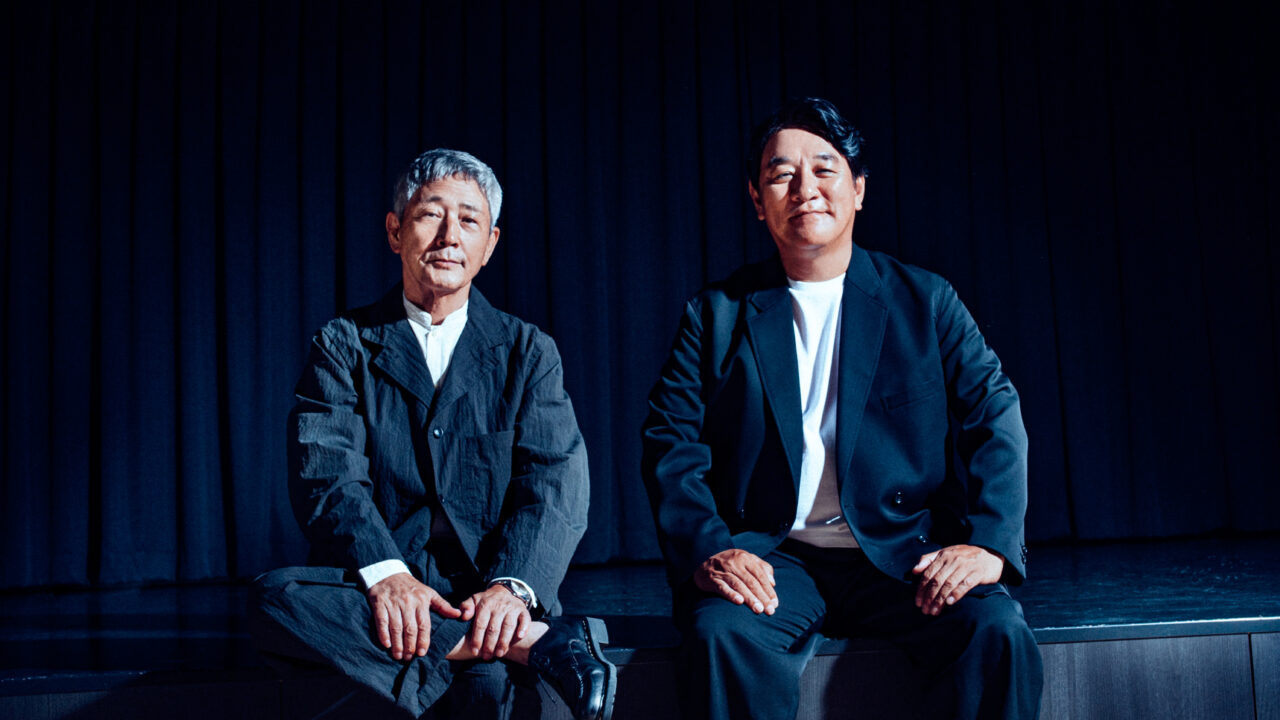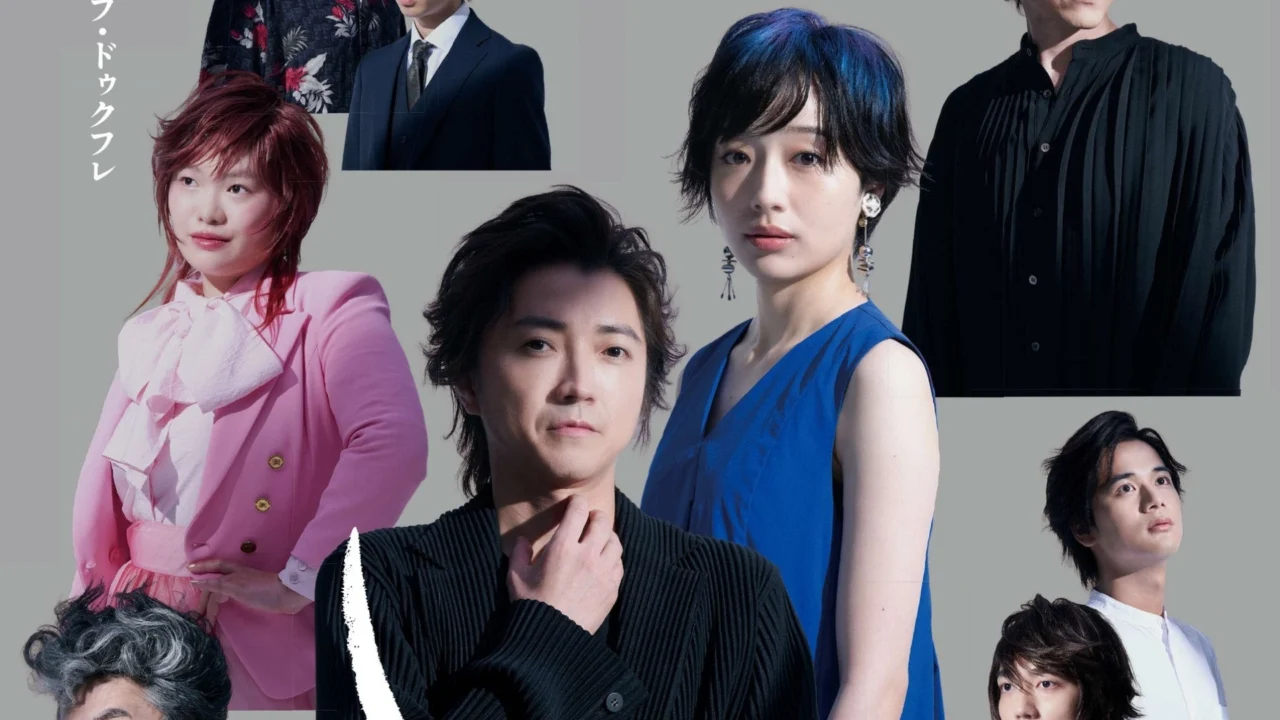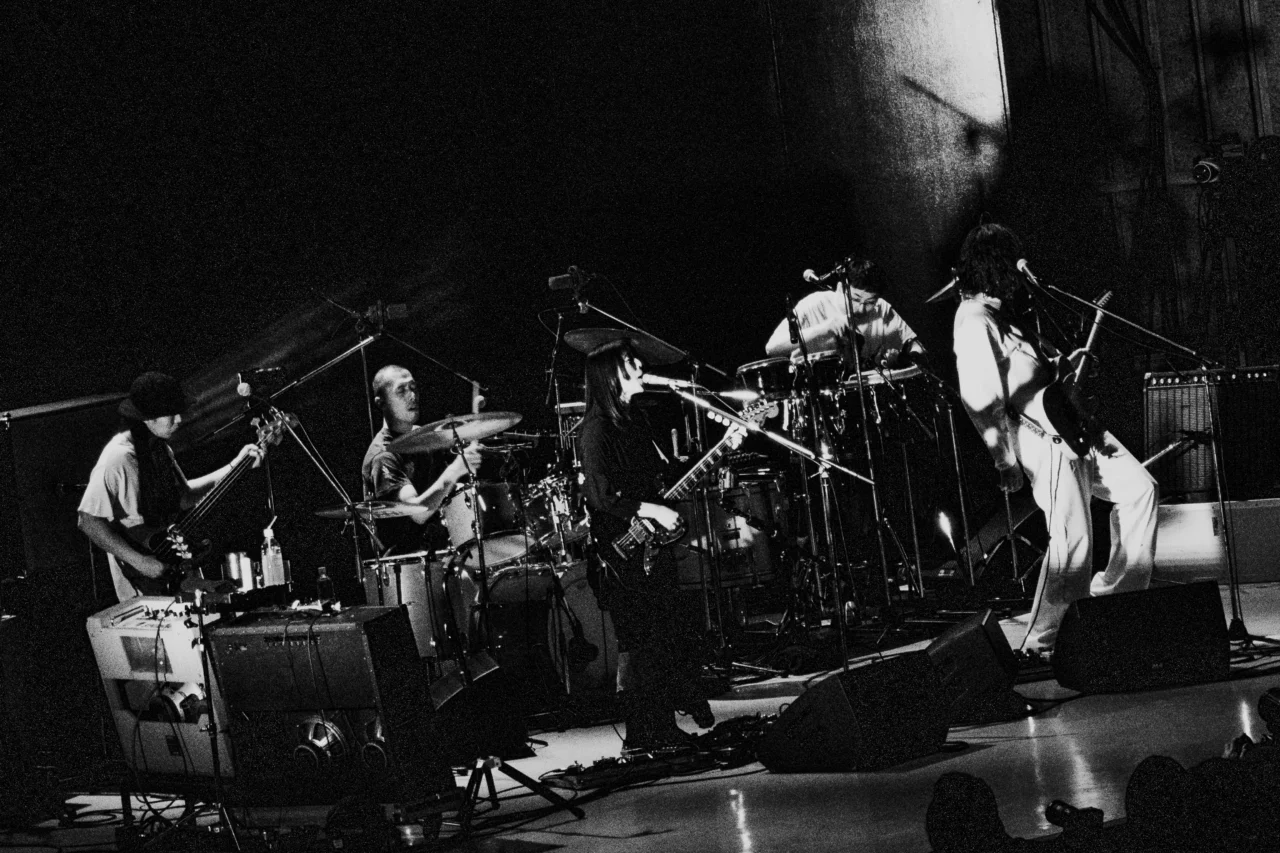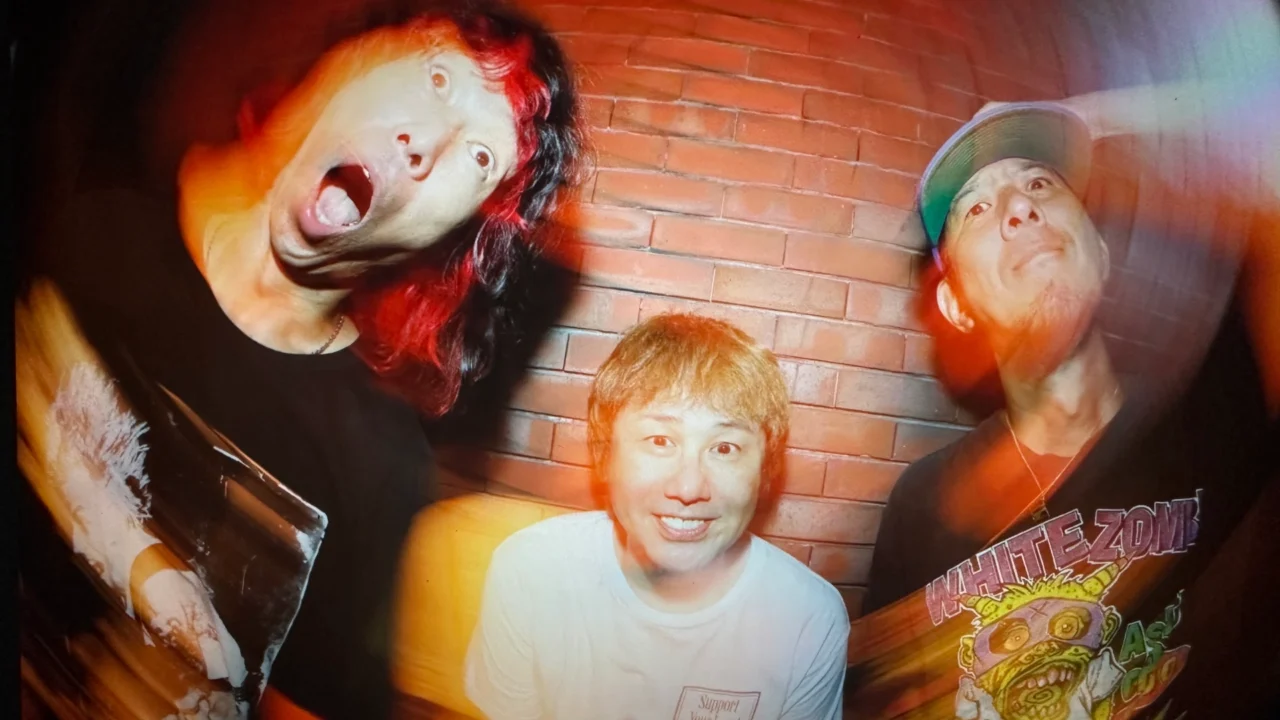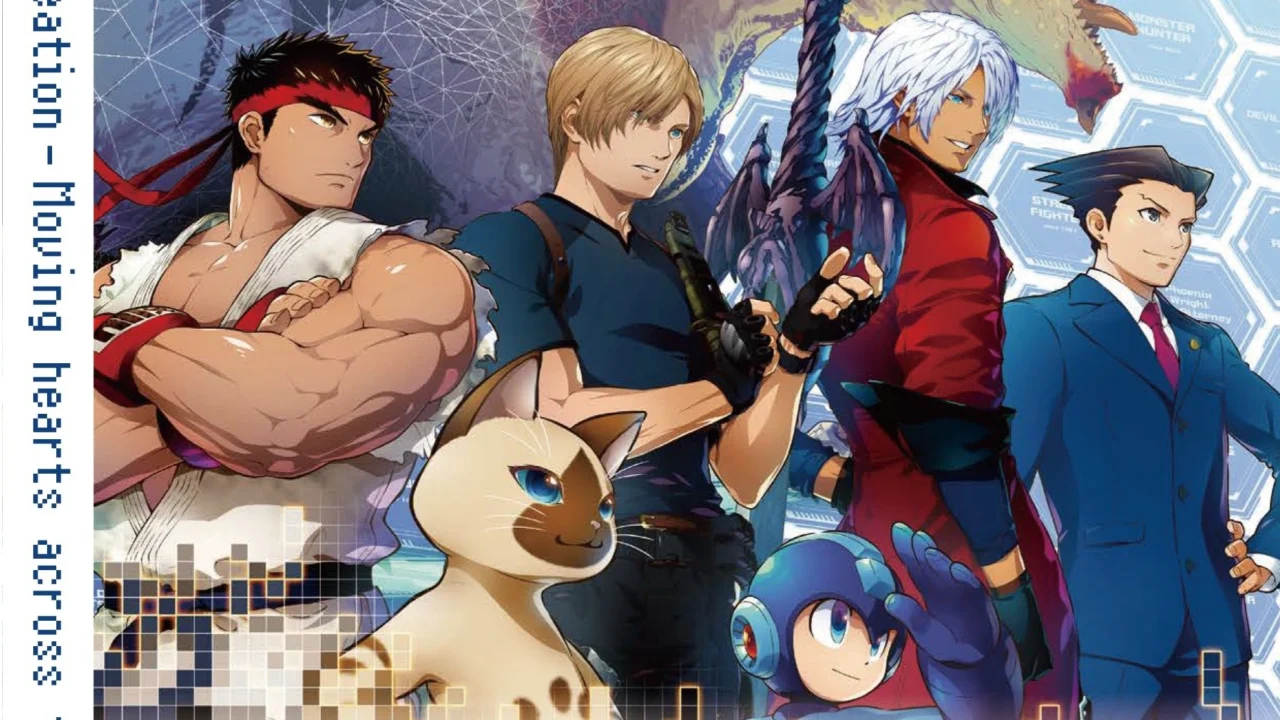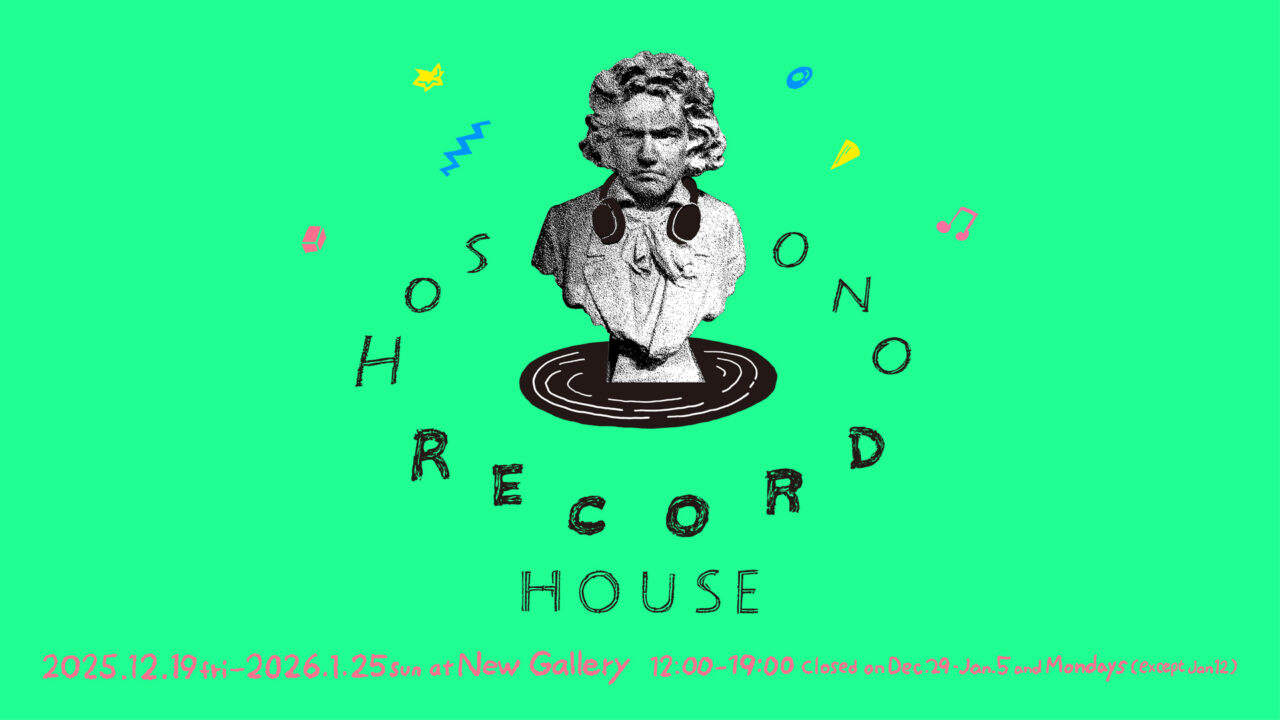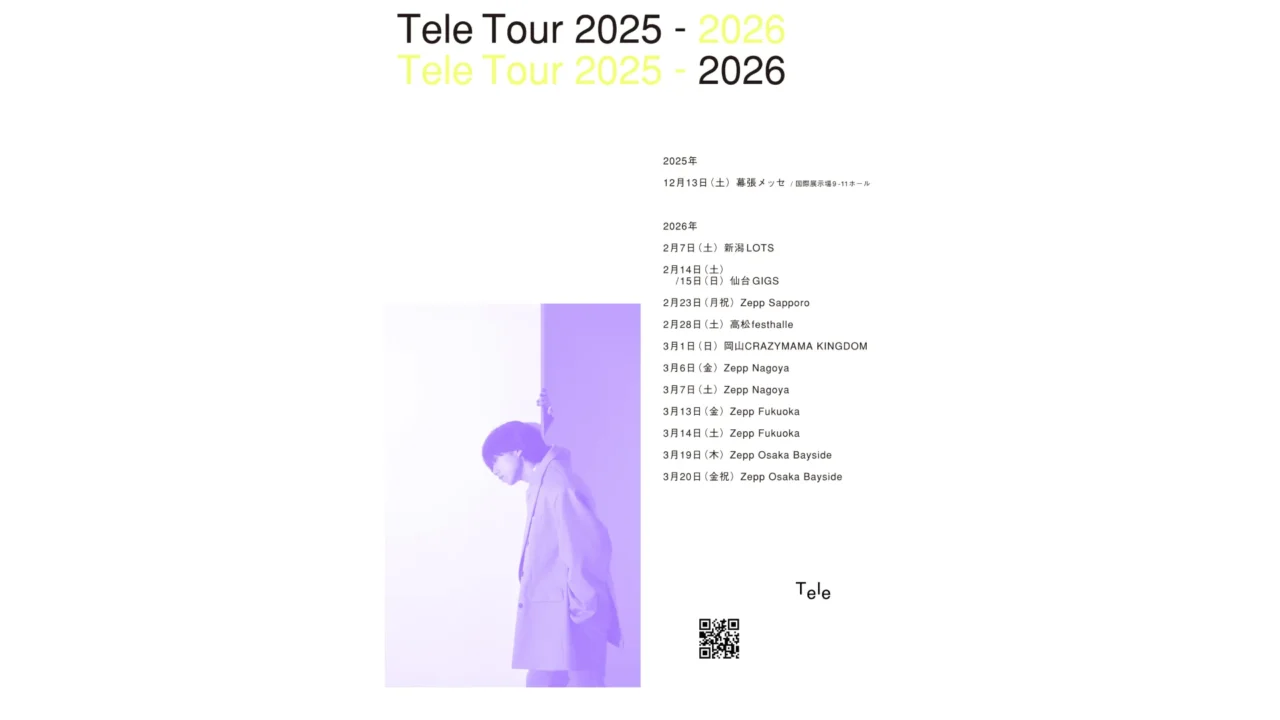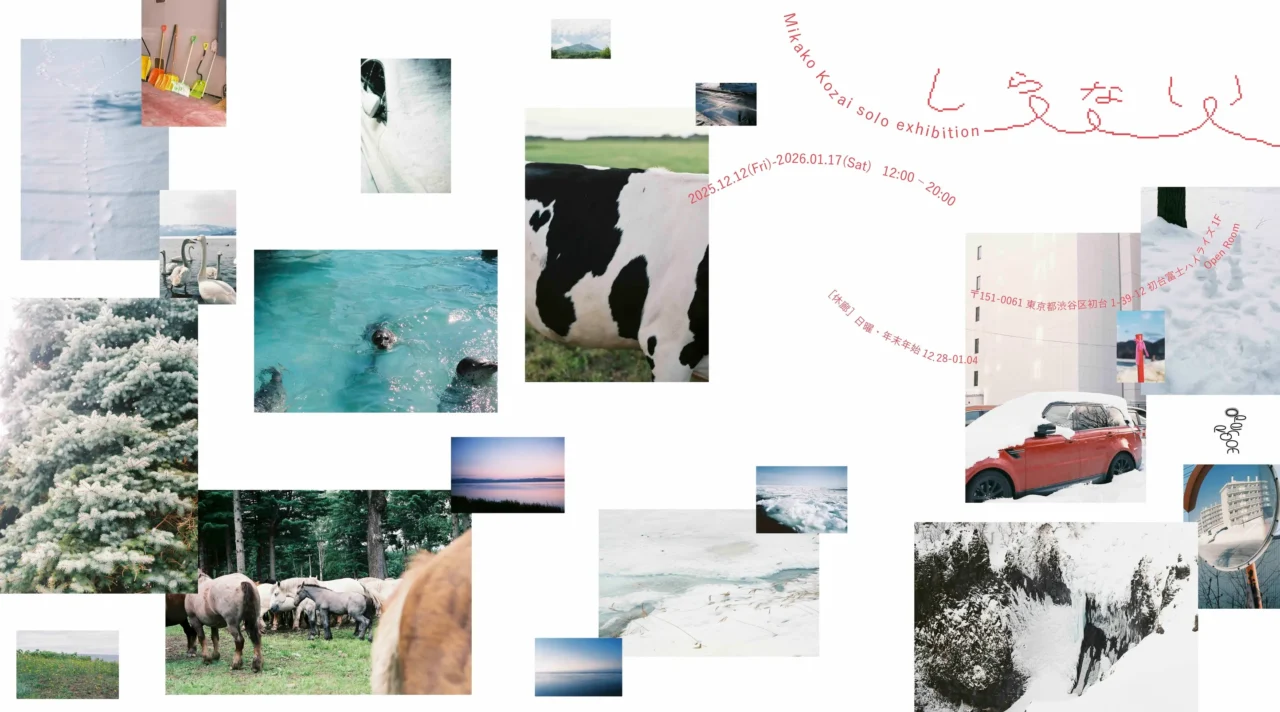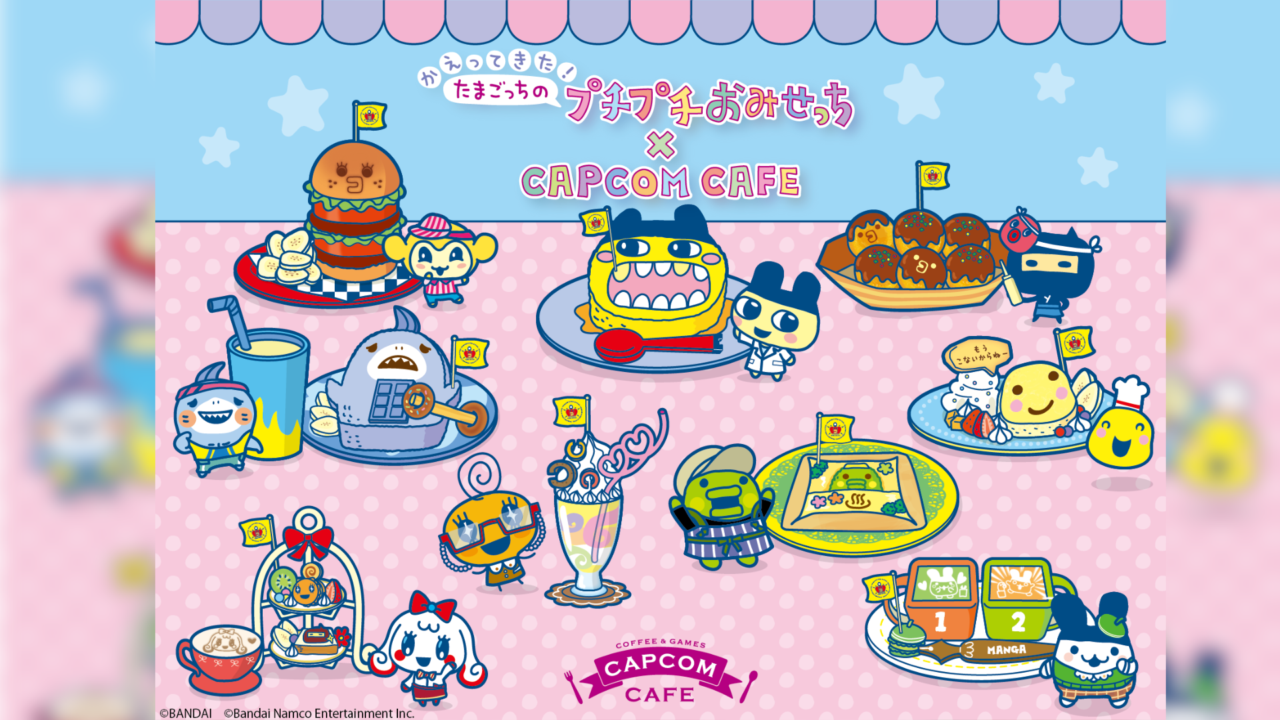“Step Out of This World”—that’s almost what this song seems to propose to its listeners. Nishina’s new track, “plum,” captures the essence of turning away from the “rightness” imposed by the world and yearning to live according to one’s own desires, all set against a pulsating rhythm.
This track, which feels like a love song tinged with a sense of moral ambiguity and also delivers a message of alternative living, was arranged by Yaffle, the producer who recently worked with Nishina in the band for Fujii Kaze’s performance on “tiny desk concerts JAPAN.” The sound, while capturing the tumultuous inner emotions, has a supple physicality that colors the song’s emotional landscape and highlights its sweet allure.
The song doesn’t depict a flawless hero. Instead, it portrays imperfect humans, like you and me, who, by accepting their imperfections, plot to step out of this world. “plum” is that kind of track.
Since last year, Nishina has been releasing singles that exude boldness and a light, free-spirited vibe. We delved into her current mode in an interview.
INDEX
A Childhood of Confusion and Restlessness
The new song “plum” is striking with its sense of moral transgression, and the word “sweetness” in the lyrics seems to perfectly capture the essence of the track. The lyrics seem to depict people trying to deviate from conventional notions of “rightness,” and there’s a consistent sense of your poetics from your first single, “Rendezvous.” What inspired the creation of “plum”?
Nishina: I have a song called “FRIDAY KIDS CHINA TOWN,” and while playing the same three chords used in that track, a melody started to come to me. I thought, “This could turn into a fun, catchy song.” That’s how the creation of the song began. As for the motif of “plum,” I’ve wondered since I was young why plums are sour on the outside even though they’re fruits. Unlike other fruits that are sweet, it didn’t make sense to me that only plums are sour [laughs].
-[laughs].
Nishina: I also discovered that the word ‘Peach’ in Justin Bieber’s song ‘Peaches’ is slang for ‘a wonderful person.’ Since peaches are sweet, the slang makes sense, but I thought I might relate more to plums than peaches. I also looked into stories like Adam and Eve, and various small inspirations piled up as I continued writing the lyrics.

A new star has emerged with the natural talent of her voice—Nishina. Her voice is gentle yet ephemeral, with an addictive quality. Her melodies are nostalgically soothing, evoking a sense of pleasant drowsiness. The words she weaves are playfully innocent yet exquisitely delicate. Her music, calm yet hinting at an underlying madness, captivates listeners thoroughly. Selected for Spotify’s next-generation artist support program “RADAR: Early Noise,” Nishina’s voice and music have gradually enchanted listeners at their own pace. Now, her talent, embodying “transience and madness,” begins to seek encounters with the world more actively.
It’s striking that you were unsettled by the differences between plums and other fruits when you were young. Were you the kind of child who often had doubts and insights?
Nishina: I’m not sure. It wasn’t so much about having a lot of doubts or insights; it was more about not being able to “accept” things. Looking back at my childhood, I wasn’t particularly gloomy, but I was someone who ran around with a feeling of “not being able to accept” things. It was like I carried a personal sense of mystery, thinking, “Maybe this sense of loneliness is something only I have.”
So, it seems like you carried these mysteries with you but didn’t keep them to yourself.
Nishina: Yes, exactly. It felt like I was running around thinking, “I don’t really get it!” [laughs].

I feel that this sense of running around with unresolved mysteries comes through in your music today. The lyrics of “plum” seem to depict two people, with one side of their thoughts being expressed. How do you see the human dynamics reflected in this song?
Nishina: To put it simply, imagine a story where there’s a female protagonist and her relationship with a male counterpart. The protagonist has both a strong and a weak side; she’s not perfect. The weakness behind her bravado is likely noticed by the other person. But she persists in maintaining her bravado. She’s the kind of person who might say, “This lifetime is too difficult. Let’s try again in the next one,” showing a certain forcefulness.
The forcefulness you mention is reflected in the ending of the song, where it sings about “期待して左様なら” (expecting to meet again in the next life). From our conversation, I feel that the song’s sense of both rebelliousness and a certain refreshing quality comes largely from this forcefulness.
Nishina:I think this final part might reflect a bit of myself. I’m the type of person who, after much contemplation and struggle, often ends up saying, “Well, whatever!” (laughs). Perhaps this personal touch is what shapes the conclusion of the song. In a positive light, as you mentioned, it might be seen as “refreshing,” but it could also be interpreted negatively as “giving up” or “letting go.” That’s how it turned out… or rather, that’s how it became (laughs). It felt natural to me. I didn’t overthink the ending, but talking about it now, I can see my personality reflected in it.

INDEX
Embracing the More Distorted Aspects of Myself
It seems to me that the lyric “I can’t settle for just being a good kid who’s merely cute / Because I want to break free so much” reflects your inner feelings. What do you think?
Nishina:I don’t remember exactly why I wrote this part, but now I think it relates to how, back in school, everyone has their strengths and weaknesses. I was the type who focused on improving my weaknesses to raise my average. However, I now think it might have been better to focus more on developing my strengths. Even now, there are always people who sing better, write better songs, or are more intelligent than me. The comparisons seem endless, but perhaps it’s better to embrace a unique, unconventional path, like the distorted character on the album cover. I think this desire to break free and follow my own direction is reflected in this part of the song.
This part of the song seems to reflect your ideals and feelings.
Nishina: I’ve always felt that being “perfect” isn’t the answer. However, we grow up in a culture where people tend to believe that perfection is the standard. I want to embrace and love my more imperfect, distorted self, and I think it would be wonderful if others could do the same with their own imperfections. So, I hope this song serves as a kind of veil for the weaker parts of myself. It would be great if it could offer a sense of strength, even if it’s just a bit of bravado. I hope to continue creating music that captures these sentiments.

You mentioned “Adam and Eve” earlier. Was that concept significant in creating this song?
Nishina: There was a connection with fruit, but I was more intrigued by the idea of where humans learn the concept of shame. I found out that according to the story, Adam and Eve developed shame through their sins, which I thought was interesting. Since “plum” is a sensual song, I felt that themes of strength and weakness, assertiveness and shyness—these elements would enhance the theme of the song.
The sense of “sensuality” or physicality you mentioned seems to be a prominent aspect of your recent work. For example, the song “bugs” released this January was quite danceable.
Nishina: That’s true; it might be present in other songs as well. With “plum,” I think the image of fruit dripping with juice is quite sensual. I often draw inspiration from food, and even the act of eating can appear sensual to me. Although I didn’t think about it too deeply, it’s an element that naturally emerged.
INDEX
How Nishina Embraced the Concept of “No Correct Answer”
How does the song “plum” reflect Nishina’s personality, and how does it relate to the concept of “embracing imperfections” and “stepping outside the lines”?
Nishina: Well… For example, if we talk about “right” and “wrong,” I think that right now I don’t know what is correct and what is incorrect. Actually, I might just feel like “anything goes.”

Nishina: People’s choices are valid as long as they made them, even if others might see them as mistakes. I’m not sure if I’m expressing this well, but it’s essentially about the idea that “there are no right answers.” I think this is something I strongly believe in right now. It might mean being “ambiguous” or “struggling,” but in that sense, “plum” is very much like me.
How do you think Nishina arrived at accepting the idea of “no right answers” and “not knowing”?
Nishina:In life, through meeting various people, I’ve learned that what I think and feel is not necessarily the same as what someone else feels. But I’ve also understood that this doesn’t mean what I believe is wrong. It’s been a continuous process of these realizations that has brought me to where I am now.

Nishina: Additionally, when creating music, there are times when you might think, “I’m going to hit the mark with this song!” but it doesn’t always go as planned. Through these experiences, I’ve come to believe that it’s important not just to focus on results but to value the process. Of course, I still care about outcomes, but I’ve learned that past styles are valid, and current styles are valid too. People change, and values differ from person to person, which I’ve learned through various experiences.
It seems like you’ve discovered the importance of how you live, not just the results.
Nishina:Exactly. While it’s important to create something that people will appreciate and meet expectations, I now believe that “who you’re creating with” and “how you can enjoy yourself” are even more important.
Including your new song “plum,” many of your recent singles seem to reflect a flexible strength and lightness that embrace the idea of “no right answers.”
Nishina: Indeed. Even with songs that haven’t been released yet, there are various impressions, like “positive” or “negative.” I think the ability to create these different kinds of music comes from being able to move easily in the direction I want to explore at the time. Maybe this is just the current phase I’m in.
INDEX
Ongoing Struggle: Doubts About Whether It Was the Right Choice
Since your debut, you’ve released two full albums. Do you feel that the sense of having achieved something each time has led you to your current mode?
Nishina:Well, I’m not sure about that. The difficult part for me is that I’ve never really felt like I’ve completed anything. I’ve never thought, “I did it!” I’m always struggling with, “Was this the right choice?” So, perhaps that’s why I focus on enjoying the process. Since my doubts never really end, I feel that the only option is to enjoy myself.

Do you feel that your motivation for making music has changed over time?
Nishina: I think the core motivation, like “I enjoy creating” or “I want to make something,” hasn’t changed. However, compared to the past, now I can directly meet listeners and see, “These are the people who are listening.” I still create music both from happy feelings and from expressing troubles I can’t talk about, but now I can also imagine how to enjoy the process with the listeners.
How do the ideas of “enjoying with listeners” and “everyone is different, and there’s no right answer” connect and influence your music?
Nishina: I can’t really write lyrics that say “everyone is happy,” but I often end up writing about things like “everyone is different” or “I’m feeling sad.” Yet, the wonderful thing about music is that it allows enjoyment even without words.
Even if the lyrics express that “everyone is different” or convey sadness, as long as people are in the same space, sharing the same time, and listening to the music together, they can still find joy. It might seem contradictory, but that’s what makes music so powerful.

You mentioned a sense of “perhaps this feeling of loneliness is something unique to me” from your childhood, and listening to your music, it seems like this sense of loneliness might be deeply rooted within you, separate from the realization that “everyone is different.”
Nishina: Yes, I do experience loneliness. Sometimes I fall into it, but I think now I view it more as a part of human nature. I believe that actions and feelings derived from loneliness contribute to creating the unique traits of each person. So, I now hope to be able to even find enjoyment in loneliness. Also, when I’m making music, I’m always alone. While I’ve gained many people to consult with, the sense of solitude that appears during the creative process is something I inevitably experience.
INDEX
Sadness, Happiness, and Anger as Products of Love
I’ve noticed that the motif of “love” appears frequently in your songs. I especially felt this strongly when listening to your 2nd album, 1999. When you write about “love” in your lyrics, what underlying feelings or thoughts do you think are driving it?
Nishina:I think emotions born from “love” include self-love and love for others. When I write songs, I always want to capture some aspect of humanity. I’ve never written a song that simply describes scenes without conveying human feelings. I believe I’m always depicting human emotions. Sadness, joy, anger—these kinds of emotions seem to stem from love. If something doesn’t matter to you, no emotion would arise from it. So, even though it might sound strange, I think love is something that inevitably accompanies everything. It’s inseparable from both living and creating.
It seems that both loneliness and love are seen as fundamental aspects of being human in your view.
Nishina: Yes, even though it’s unconscious, I believe they are fundamental aspects within me.

It’s strongly felt by listeners that you have portrayed “humans” rather than just “scenes.” Why do you think you ended up focusing on depicting people rather than scenes from the beginning?
Nishina: I’m not entirely sure why… It’s difficult to pinpoint. But I think it might be because I’m human myself. Maybe I’m continuing to depict my own kind. If I were a tree, I might only write about trees. I don’t know the answer, but it just happened that way over time.
Have you ever experienced realizing something about your own thoughts when reflecting on the songs you’ve created?
Nishina: Yes, I have. For example, there’s a song called “Yoru ni Natte” (When Night Falls). When I look back at this song, I remember the anger that triggered it. I realized, “Oh, I was really angry. I hated that.” Even though I thought I was being calm, creating the song made me more aware of my emotions. Also, in “Yoru ni Natte,” there’s a lyric that goes, “Even if humanity were to become extinct someday, I wouldn’t mind.” When I wrote that lyric, I thought, “Yeah, I might not mind if humanity went extinct” [laughs].
I see. Indeed, “1999” also seemed to depict the end of the world.
Nishina: At some point, I became more consciously aware of the concept of “endings.” Living and working aren’t things that continue forever; there will always be an end eventually. By becoming more aware of this, I started to think, “How we enjoy the present is incredibly important.” For me, the awareness of endings and the pursuit of enjoyment are closely connected.
It seems like being aware of endings also ties into accepting the “unknown.” Since when and how things will end is often something no one can predict.
Nishina: Indeed. To put it drastically, everyone has parents, but even they will eventually be gone. And even if someone is as close as a parent, you can never truly know the depths of their inner self. These are things that accumulate as life progresses, as you meet more and more people. The sense of endings and the unknown will likely continue to deepen as time goes on.

Starting in November, you’ll be kicking off the Zepp Tour, “SUPER COMPLEX.” What does your ideal live performance space look like to you right now?
Nishina: We, as performers, are the ones showcasing the music, but I’ve come to realize that it’s not just about us sending energy unidirectionally to the audience. It’s more about exchanging energy: we give out energy, receive it back, and the cycle continues. Lately, I’ve felt strongly that a live show is a constant exchange of energy throughout each performance. So, my ideal is to create a live experience where both we and the audience can be ourselves and freely express one another. That’s what I aspire to achieve.
Nishina: For the next tour, I’m planning to approach it with a completely different concept from the previous one.

Nishina Zepp Tour “SUPER COMPLEX”

November 10 (Sun) – Zepp Sapporo
OPEN 17:00 / START 18:00
November 15 (Fri) – Zepp Namba (OSAKA)
OPEN 18:00 / START 19:00
November 17 (Sun) – Zepp Fukuoka
OPEN 17:00 / START 18:00
November 26 (Tue) – Zepp DiverCity (TOKYO)
OPEN 18:00 / START 19:00
November 27 (Wed) – Zepp DiverCity (TOKYO)
OPEN 18:00 / START 19:00
November 29 (Fri) – Zepp Nagoya
OPEN 18:00 / START 19:00
<Ticket Information>
Pre-sale tickets
https://eplus.jp/nishina2024














